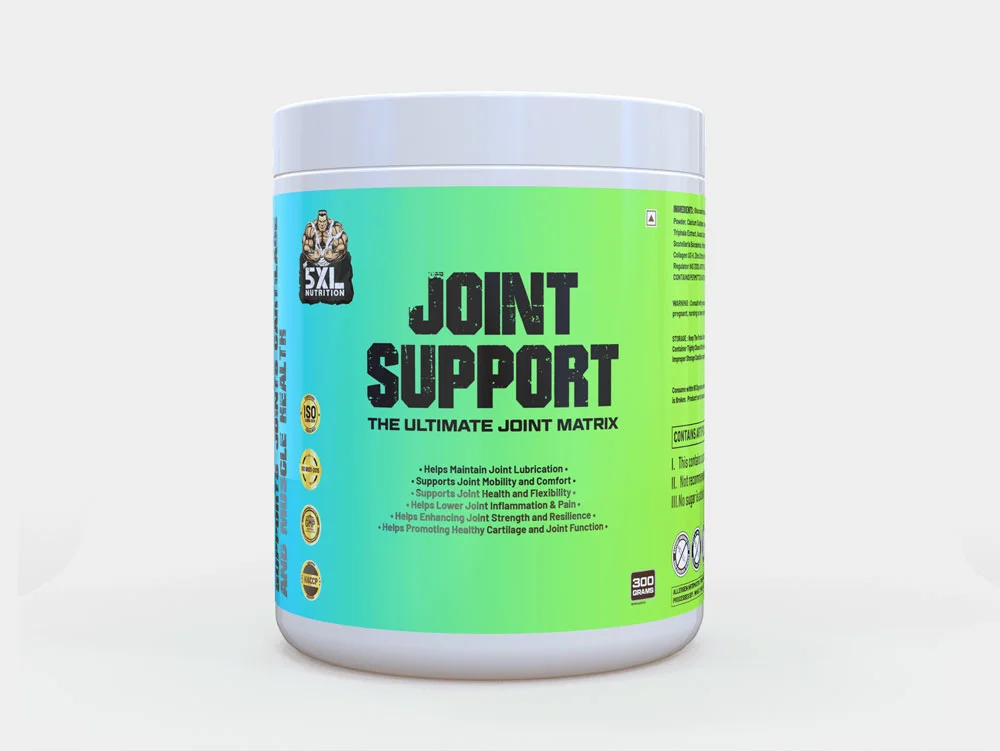How Diet Affects Joint Health – Eat Right for Pain-Free, Strong Joints
Your joints are the foundation of every movement — from walking and lifting to climbing stairs or dancing. But did you know that what you eat daily can directly impact your joint health?
A poor diet can lead to inflammation, stiffness, and faster cartilage damage, while the right foods provide powerful joint support, cushioning your joints and keeping them flexible.

Why Diet Matters for Joint Health
Joints rely on nutrients like collagen, healthy fats, vitamins, and minerals to keep cartilage healthy and reduce inflammation. Eating the right foods:
Keeps cartilage strong and flexible
Maintains healthy synovial fluid (joint lubrication)
Reduces inflammation and pain
Supports bone strength
On the other hand, the wrong foods can:
Increase joint inflammation
Accelerate cartilage breakdown
Cause weight gain, adding stress on joints
Best Foods to Eat for Healthy Joints
1. Fatty Fish (Salmon, Sardines, Mackerel)
- Rich in Omega-3 fatty acids
- Reduces joint inflammation
- Supports joint lubrication
2. Bone Broth & Collagen Supplements
- Packed with collagen peptides
- Strengthens cartilage, tendons, and ligaments
3. Nuts & Seeds (Walnuts, Flaxseeds, Chia Seeds)
- Provide Omega-3s and antioxidants
- Reduce inflammation
4. Leafy Green Vegetables (Spinach, Kale)
- High in Vitamin K and C
- Supports cartilage repair
- Reduces oxidative stress
5. Berries (Blueberries, Strawberries, Blackberries)
- Contain anthocyanins, natural anti-inflammatories
- Fight joint pain and swelling
6. Olive Oil & Avocado
- Healthy fats that lower inflammation
- Improve joint flexibility
7. Turmeric & Ginger
- Contain natural compounds curcumin & gingerol
- Powerful pain and inflammation reducers
Worst Foods to Avoid for Joint Health
1. Processed & Sugary Foods (Cookies, Cakes, Candy)
- Cause chronic inflammation
- Increase joint pain
2. Red & Processed Meats (Sausages, Bacon, Hot Dogs)
- High in advanced glycation end products (AGEs)
- Trigger inflammation
3. Refined Carbs (White Bread, Pasta, Pizza)
- Spike blood sugar
- Promote inflammatory responses
4. Trans Fats & Hydrogenated Oils (Margarine, Fried Foods)
- Directly linked to joint inflammation
- Reduce cartilage health
5. Excess Salt (Packaged Snacks, Instant Noodles)
- Causes water retention
- Increases joint swelling and stiffness
Lifestyle Tips to Support Diet for Joint Health
Maintain a healthy weight to reduce pressure on joints
Stay hydrated to keep synovial fluid levels optimal
Exercise regularly to strengthen muscles supporting joints
Include joint support supplements if your diet lacks key nutrients
Real Stories – How Diet Improved Joint Health
“I started adding salmon and turmeric tea to my diet. My knee pain reduced within weeks!”
– Sushmita R., Yoga Instructor
“Cutting down sugar and fried foods helped my arthritis pain more than painkillers.”
– Deepak S., Accountant
Boost Diet Results with Joint Support Supplements
While a balanced diet is the foundation, adding supplements like 5XL Joint Support gives your joints the extra nutrition they need. Our blend of:
Glucosamine
Chondroitin
MSM
Hyaluronic Acid
Collagen
…works alongside your diet to maximize joint support, reduce pain, and improve mobility.
Strengthen SEO – Smart Internal Linking
Link these related pages to improve your website/blog authority:
Final Verdict – Eat Smart for Strong, Pain-Free Joints
Your diet is a powerful tool to protect your joints and keep them flexible, pain-free, and strong. Eat more Omega-3s, collagen, greens, and anti-inflammatory spices, while avoiding sugary, processed, and fried foods.
For faster, better results, combine your diet with high-quality joint support supplements — because you deserve to move without pain!
FAQs – Diet & Joint Health
Q1. Can diet alone fix joint pain?
A healthy diet can greatly improve joint health, but severe pain often needs medical advice and joint support supplements.
Q2. How soon will diet changes improve joint pain?
Most people feel benefits in 2–4 weeks, depending on consistency.
Q3. Are vegetarian diets good for joint health?
Yes — if you include plant-based Omega-3s, leafy greens, and fruits rich in antioxidants.
Q4. Should I take supplements along with dietary changes?
Yes! Supplements can fill nutritional gaps and boost results faster.
